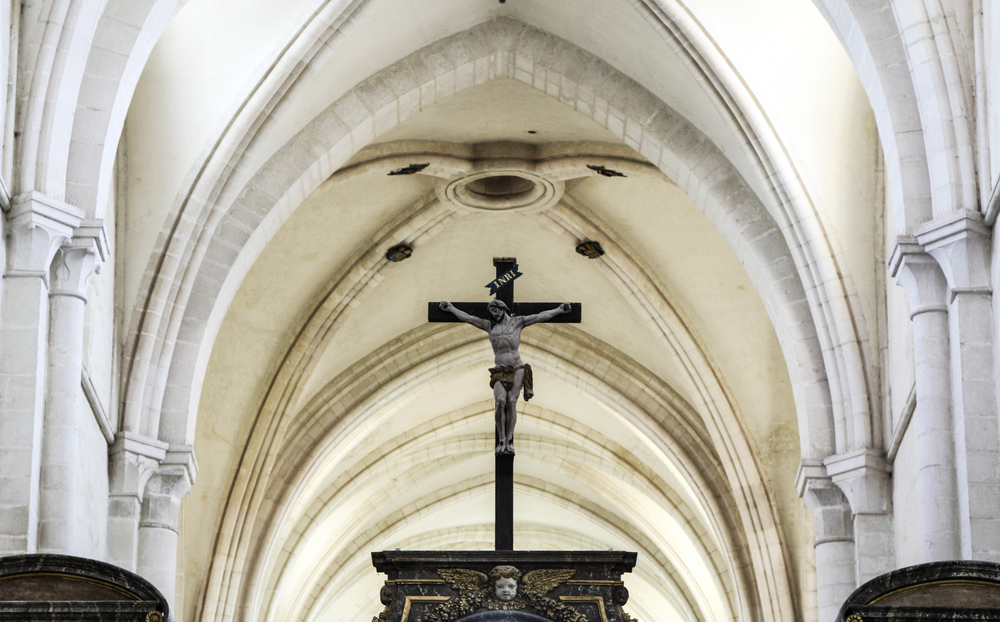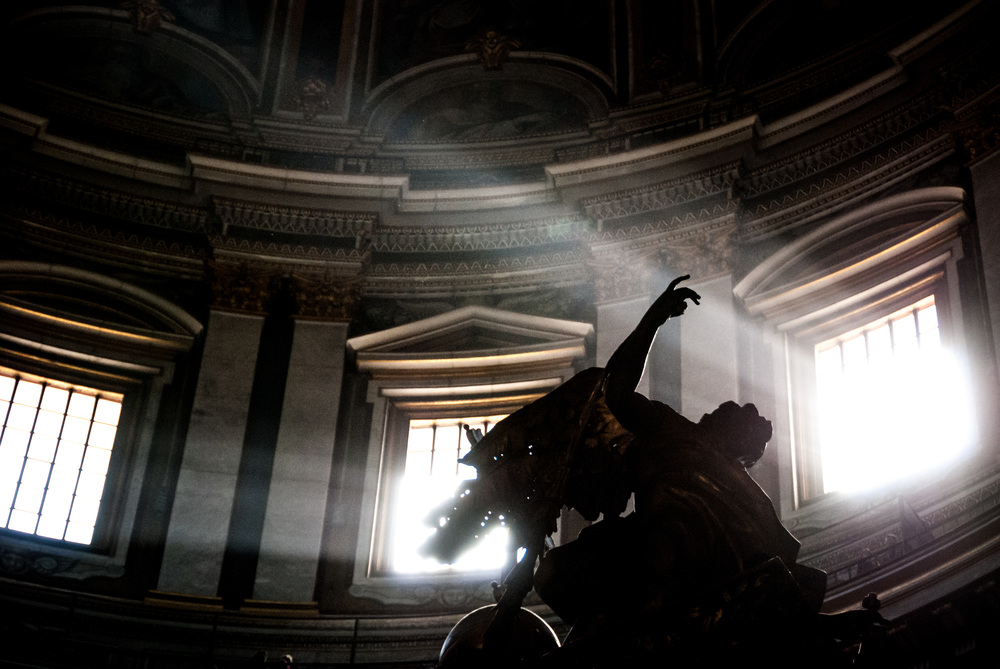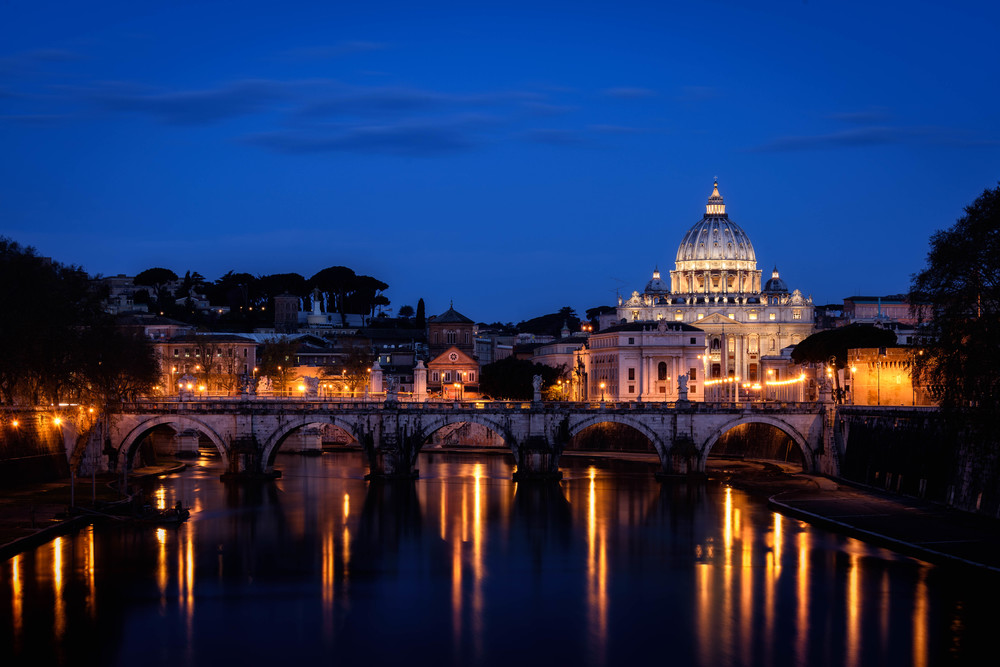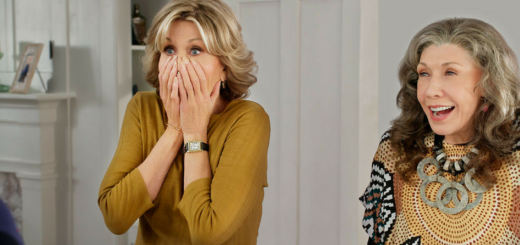Everyday Faith: I’m Following Christ Wherever He Leads, So I’m Converting to Roman Catholicism
 The author and his daughter. (Image courtesy of Daniel Hyland/Hilary Hyland Photography)
The author and his daughter. (Image courtesy of Daniel Hyland/Hilary Hyland Photography)
By DANIEL HYLAND
Editor’s note: To celebrate the season of Christmas, we vaguely planned months ago to “feature perspectives on faith,” reached out to some people and then were blown away by their stories. Each is a unique, extraordinary reminder of how faith transforms everyday life.
A gentle snow fell outside as morning light moved up the walls and steaming water filled the bath. Hilary and I had already been awake for an hour, and we were busying ourselves around the bed and the bathroom, happy and anxious. We were waiting to meet our daughter. In a short while, our midwives would arrive; and at a little past 8 p.m. that evening, with their help, Amelia Jane Hyland would arrive also.
It was March 25th, the Feast of the Annunciation.
In 2016, Good Friday will fall on March 25th, making a kind of eclipse–Christ’s conception and His death together at once. It will mark not only Amelia’s second birthday, but also the beginning of the single liturgical day of the Triduum–the three-day period in which Mass is withheld until the resurrection of Christ on Easter Sunday. On the morning of that Easter Vigil, I will have the privilege and joy of receiving His resurrected body in the Eucharist for the first time as a Catholic.
 Image via Lawrence OP/flickr
Image via Lawrence OP/flickr
In the several months since I made this decision, I have been attending Mass at a local parish named for the Sacred Heart of Jesus. Like that icon of His dying sufferings and undying love, I have felt my own heart burning as I have begun to read His full, unaltered Word; to worship Him truly present in the Eucharistic sacrifice; to study the works of His friends, the saints; to accept absolution of my sins from His ministers; and to learn, through the devotion of the rosary, to know and love Him as Mary knew and loved Him.
Although I still have so many questions, my love for the Catholic Church has grown strong in a short time. How it happened would be a long story; but exactly what has happened is easier to pin down.
 Image courtesy Daniel Hyland/Hilary Hyland Photography
Image courtesy Daniel Hyland/Hilary Hyland Photography
The simplest and most accurate way to describe what happened is that I came to believe the Church. And so I love the Church, in the same way that I love Christ: because I believe Him.
Apart from believing and loving Him, I wouldn’t have any reason to believe and love the Church.
Everyone who knows what Christ claimed–that He is the Son of Man foretold in Daniel 7:13, that He is God Himself come to cleanse us from sin and rule as the King of kings–is forced to come to a conclusion, and there are only three options. As C.S. Lewis puts it in Mere Christianity, Christ must be liar, lunatic or lord: the nature of His claims necessitates that He simply lied, was entirely insane or “however strange or terrifying or unlikely it may seem,” was just what He claimed to be. To say otherwise is to question not the claims—doing that results in one of the three conclusions—but the definition of truth.
Agnosticism is not a serious intellectual position on this matter. If I told you that your car would explode when you turned the ignition, and you replied, “That’s an interesting perspective,” then got in and drove off, you would have a hard time defending the idea that you had formed no judgment on the subject. And if someone told you, “Unless you eat of my flesh and drink of my blood, there is no life in you,” and you did nothing about it and didn’t even ask for clarification, it’s clear that you’ve made up your mind one way and not another.
Something similar can be said about the Catholic Church, because her claims present a similar dilemma. The Catholic philosopher Peter Kreeft puts it very well in his commentary on the Catechism of the Catholic Church:
“If the Catholic Church does not have the divine authority and infallibility she claims, then she is not half right or 95 per cent right, but the most arrogant and blasphemous of all churches…Just as a mere man who claims to be God is not a fairly good man but a very bad man, a merely human church that claims divine authority and infallibility is not a fairly good church but a very bad church.”
So which one is it?
As with Christ, there are only three options: the Catholic Church must be rooted in lies, lunacy–or in the Lord Himself, if what they say is true. But if it is true, then the statement in the Apostle’s Creed, “I believe in God the Father Almighty, and in Jesus Christ His only Son,” entails in itself the later statement, “I believe in the Catholic Church.” These claims are related. So, as Kreeft puts it, “The only honest reason to be a Christian is because you believe Christ’s claim to be God incarnate. The only honest reason to be a Catholic is because you believe the Church’s claim to be the divinely authorized Body of this Christ.”
When I saw this, I realized that I faced a demanding dilemma. If the Catholic Church did have the unique sanction of Christ, as she claimed, then how long was I going to remain apathetic about Christ? Or, if the Catholic Church was lying through her teeth about a fraudulent authority supposedly received from my Lord’s lips, then, again: How long was I going to remain apathetic about Christ?
I don’t want to stir up trouble for the Church from other Christians, who share the same baptism and are, in the words of Lumen Gentium, “correctly accepted as brothers by the children of the Catholic Church.” But maybe it would be good if more people took this serious challenge seriously.
It worked for me: I was raised a Calvinist, and I started looking into this subject because I wanted to prepare myself to counter Catholic claims! As a Protestant Christian, I saw that I had to regard this Church either as my opponent or as my true home.
 Image via Stijn Nieuwendijk/flickr
Image via Stijn Nieuwendijk/flickr
Once I realized this challenge and went out to meet it, I made, in G.K. Chesterton’s words, the fatal mistake of being fair: I decided to let the Church speak for herself. As soon as that began, the whole thing was over; I just didn’t know it. Given the chance, she convinced me of her true character, wooed me with her qualities and received me.
Some people are sure that she simply seduced me, without any of the convincing. The reality is simpler: The Church is telling the truth, and truth commands obedience.
So I obeyed.
Nevertheless, I’ve been told on a few occasions that I’m really becoming a Catholic for aesthetic reasons, or because I’m simply too excited about the subject. I imagine that converts of all kinds receive similar criticisms, and I know that they are well-meant.
But to be honest, I don’t know how excited you can expect someone to be about realizing he’s been wrong all his life, or that his derision and jokes are actually on him, or that there are a number of new and difficult responsibilities he needs to fulfill. None of that is tremendously thrilling, having lived my whole life scorning the claims of Catholicism!
This kind of psychoanalyzing is practically bound to be spurious, if only because it nearly always commits the logical fallacy of origins: If I can show how you came to hold this belief, that will show that it is false. But knowing how someone came to their beliefs will not tell you anything dependable about whether those beliefs are true. This kind of autobiographical apologetic is no substitute for the work of forming a substantive appraisal of the claims being made.
Besides, even as psychology, almost all such attempts to explain a Catholic conversion fall flat on their face.
So, you’re submitting to the pope? You must hate authority!
Going to tell somebody all the worst things you’ve ever done? Always taking the easy way out.
 Image via Frank Jakobi/flickr
Image via Frank Jakobi/flickr
However, out of all of them I have found that there is one suggestion that is a little harder to get around, but also more illuminating to consider than any of the others: beauty.
Isn’t it possible, I’ve been asked, that you’re breathlessly converting because of the liturgy, the order and harmony, the magnificent grandeur of the Church?
I have the unique privilege of being more susceptible to this suspicion than most. As a college sophomore, I traveled through Italy with my class for five weeks and saw many of the treasures of the Catholic Church in Rome, Assisi, Venice and Florence. But it is important to note the effect that this had on me because of my concrete beliefs about the Church.
As much as I was drawn by the innumerable masterpieces in oils, marble and gold, I was repelled by the Catholic nature of all that I saw. It wasn’t enough that it was beautiful. Some of Robert Mapplethorpe’s photographs are aesthetically beautiful, but they are repulsive in their content. As I woke on early mornings to sketch Saint Peter’s dome rising into golden light from blue shadows, I felt a deep and constant pity and bitterness.
Martin Luther stood in my heart like a ghost on the basilica steps, condemning it all.
 Image via Ade Russell/flickr
Image via Ade Russell/flickr
I loved the Church’s beauty, but in spite of her. I wanted to see it freed from her, regained, like stolen riches. Not even beauty could contend with my belief that the Catholic Church was a lying usurper, dealing in false forgiveness to fashion a crown for the whore of Babylon.
What a horrifying dream it would be, to believe what Christ has to say if He turns out to be a fool or a liar! It would be like walking up a dark staircase and finding, just as you reached the top, that there were no more steps and you were falling–falling into darkness. My God, wouldn’t it be better to face the music and accept oblivion if that’s all there is? What could be worse than that false hope of eternity?
On another level, what could be worse than that false hope of confidence, comfort and riches offered by the Church? The more lovely, the more desirable, the more intimate she sought to become, the worse you would hate her for her lies, because you wished them so badly to be true but knew them to be false. Every promise would ring in your heart like a curse. All her comforts would threaten like rusty traps.
Her beauty would only wound your soul.
But what if it were true?
 Image via Aletela Image Department/flickr
Image via Aletela Image Department/flickr
If it is one of the worst losses to find great beauty in the service of terrible evil, then certainly one of the greatest joys is to discover that within an exquisite body there lives an equally exquisite soul.
What if He were not lying? What if she were not lying? What if proving Him proved her? What if all of her beauty, her promises, her solace were raised up in truth like turrets of a fortress bright against the darkness of the world? They could not raise themselves; but were they raised, nothing would stand higher.
This is precisely the joy that I’ve found. The Catholic Church is my home, because it is the home that Christ has built for His children. She is the ark made according to His design to carry them safely to Himself. She is the pillar and bulwark of the truth.
She is true, and she is beautiful.
Daniel Hyland was raised in Northern Virginia and studied philosophy and theology at the Rivendell Sanctuary program in Bloomington, Minn. Since leaving Rivendell, he has studied and written independently on these subjects, as well as natural law and political philosophy. In his free time he reads widely, smokes pipes and cigars, writes poetry and enjoys life with his wife Hilary and daughter Amelia.




Thank you so much for your post!!!! I love how you get to the heart of the issue: regardless of my opinion/upbringing etc, what if this is true, and if it is, don’t I have an obligation to Christ and to myself to find out if it is really true?
Thank you so much for this. It really uplifts my soul and bring me so much joy! I will pray for you!